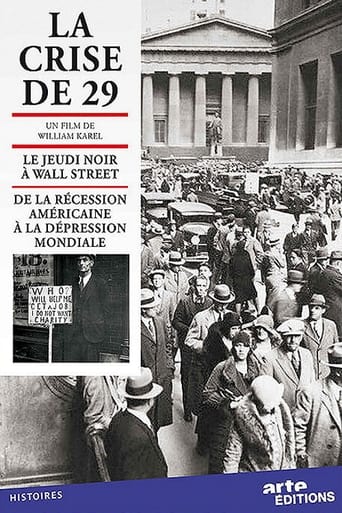lreynaert
This movie gives a good general impression of the biggest socio- economic catastrophe of modern times. But it does not explain the true causes and actions which provoked the Great Depression.We can find them in a book by Eustace Mullins 'The Secrets of the Federal Reserve' (a key book for the understanding of the economic and financial environment in which we still live today). The stock market crash in 1929 was caused by a small group of insiders, who controlled the major banks and the Federal Reserve (this institution is still today a private company, controlled by private banks and thus by the shareholders of these banks). Insiders had sold all their 'speculative' shares, because they had been warned that the Federal Reserve would increase the interest rate on call money overnight to 20%. This rate would suffocate 'small' speculators who had bought their shares with borrowed money. With their margin calls the banks forced these 'small' stockholders to liquidate (all at once) their shares paid on credit. What the insiders had not anticipated was that the prices of 'good' shares would also tumble into the ravine. What followed after the collapse is well explained in a book by Peter Temin ('Did Monetary Forces Cause the Great Depression?'): consumers lost confidence and the economy entered into a vicious downward spiral. This decline was further aggravated by the deflationary monetary policies of the Federal Reserve. The result was a staggering unemployment rate worldwide. Because of this huge crisis, a Democrat (F.D. Roosevelt) was elected as President of the United States. He forged a 'New Deal' and with the Glass-Steagall Act imposed a split of the mixed banking system into deposit and investment banks. This legislation was repealed in 1999, with all the consequences we know now.This film is a good documentary about a tragic period in the history of mankind, when a large part of the population was turned into a heap of real beggars. Highly recommended.

